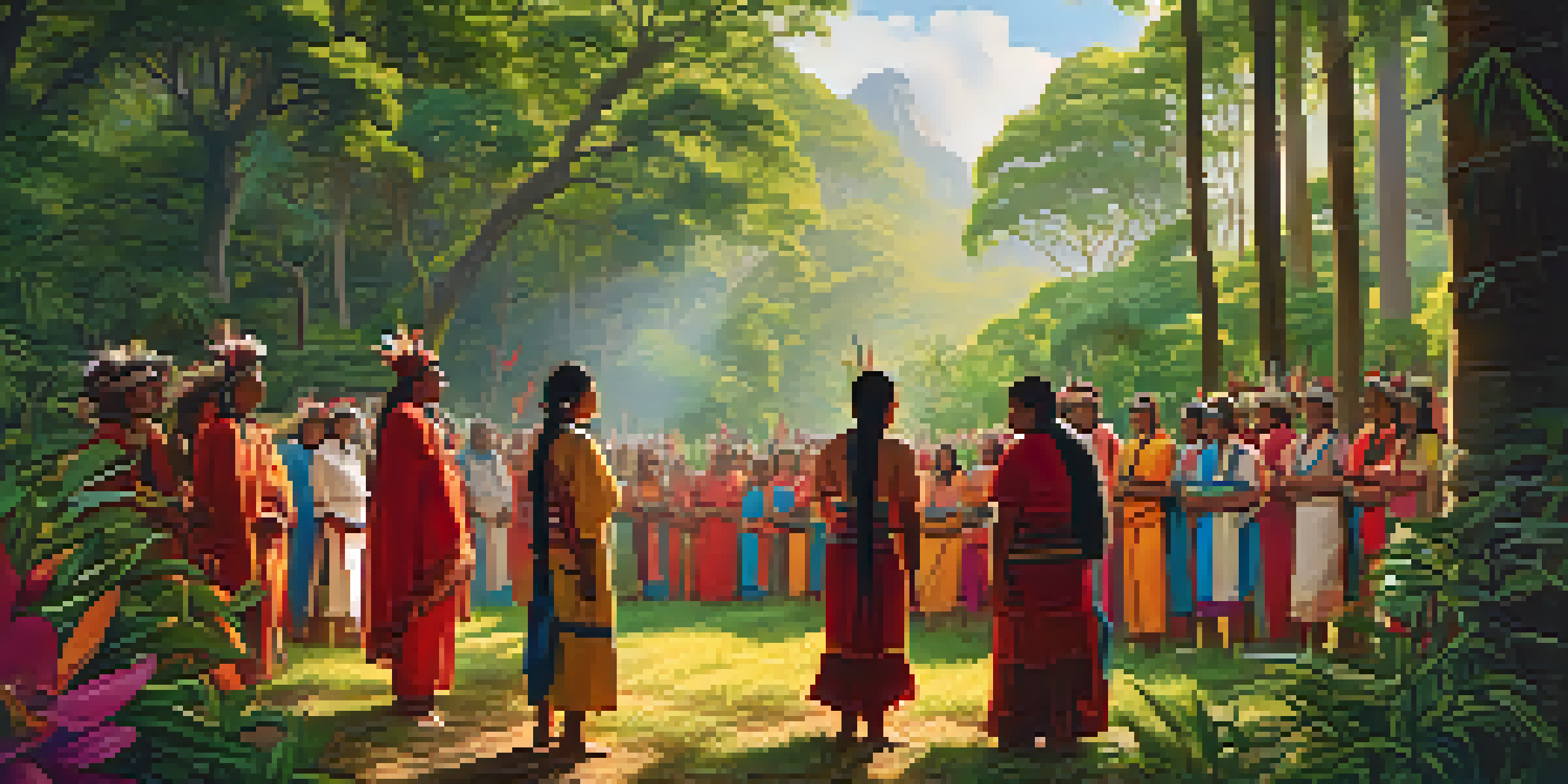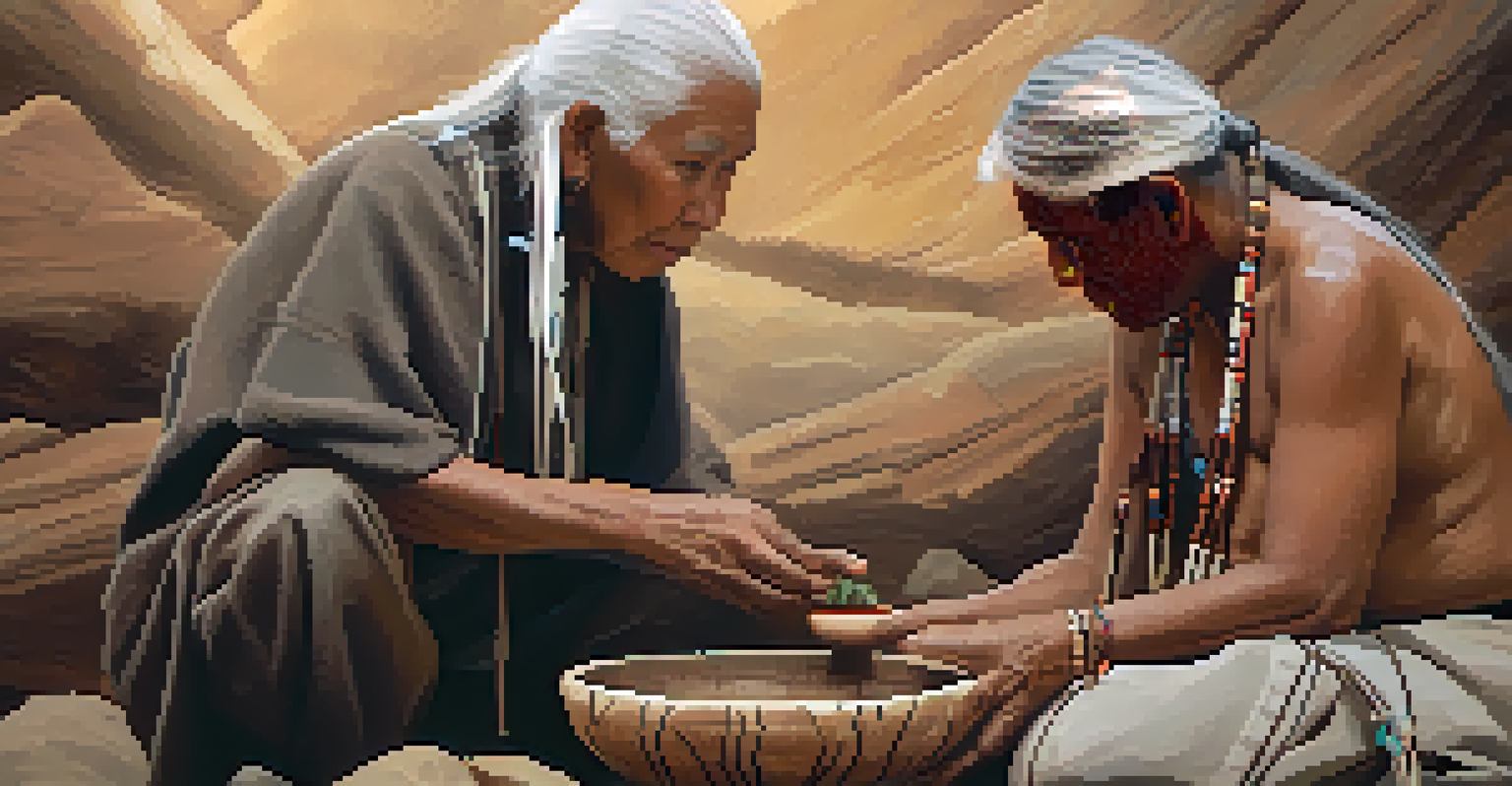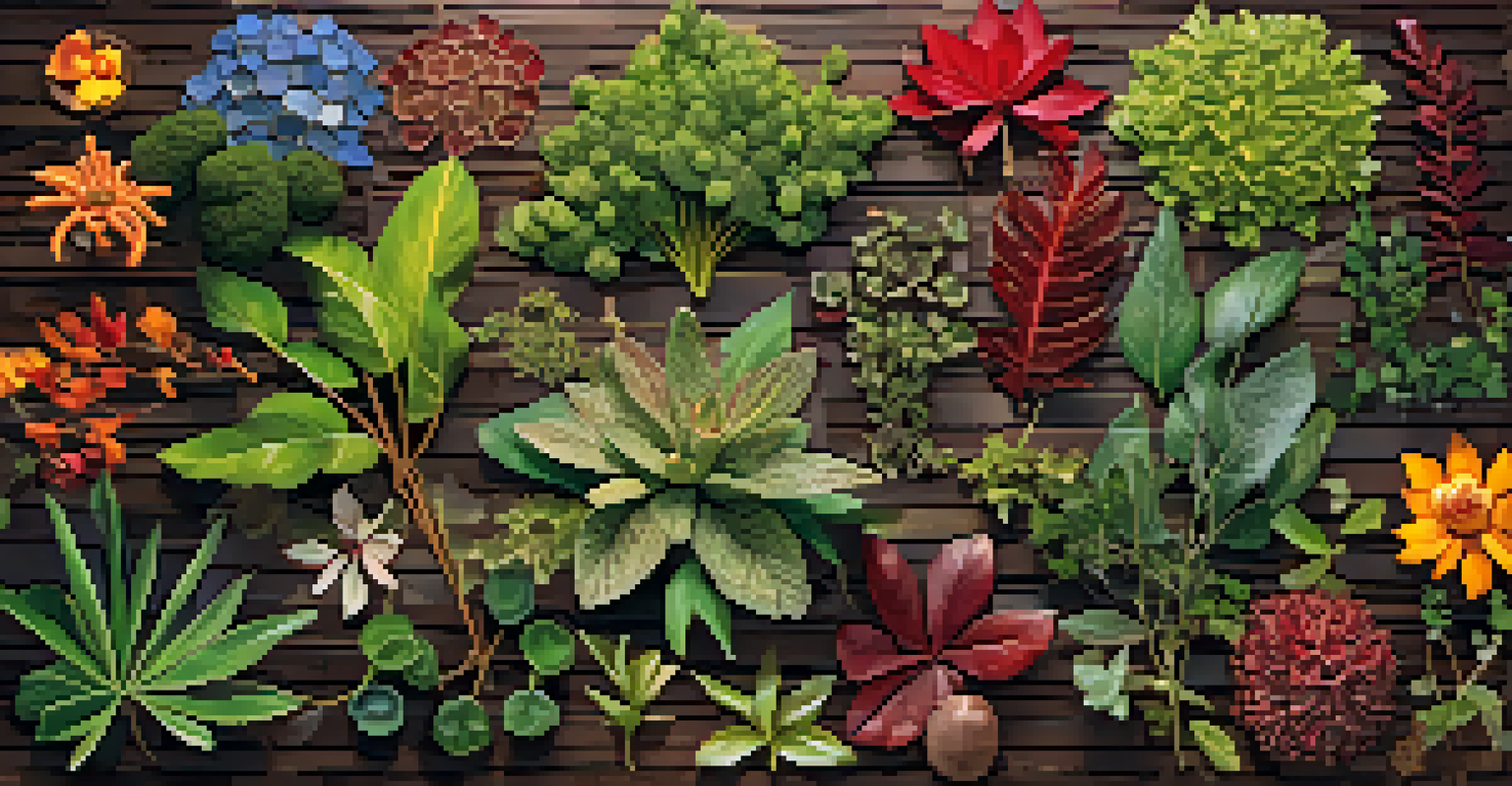Role of Entheogens in Strengthening Indigenous Cultural Identity

Understanding Entheogens and Their Cultural Significance
Entheogens are psychoactive substances used in spiritual or religious contexts, often to facilitate a deeper connection to the divine. For Indigenous communities, these substances play a crucial role in rituals, ceremonies, and healing practices. They are not merely drugs; they are sacred tools that help individuals explore consciousness and enhance their cultural narratives.
The use of entheogens has been central to many Indigenous cultures, providing a means to connect with the divine and heal the spirit.
These substances have been used for centuries, with varying cultural meanings attached to them. In many Indigenous cultures, entheogens are viewed as gifts from the Earth, embodying the spirit of nature and the ancestors. This perspective fosters a profound respect for nature and reinforces the interconnectedness of all life forms.
By understanding the significance of entheogens, one can appreciate their role in preserving the traditions and beliefs that shape Indigenous identities. This deep-rooted connection to these substances emphasizes the importance of maintaining cultural practices that honor and celebrate Indigenous heritage.
Entheogens in Rituals: A Cultural Reawakening
Rituals involving entheogens often serve as a means of cultural reawakening for Indigenous communities. These ceremonies create spaces where individuals can reconnect with their roots, fostering a sense of belonging and identity. They provide opportunities for communal bonding, healing, and the passing down of ancestral knowledge.

During these rituals, participants often experience altered states of consciousness that allow them to transcend daily realities. This transcendence can lead to profound insights, personal revelations, and a stronger connection to their cultural heritage. The shared experience of these entheogenic ceremonies often reinforces communal ties and collective identity.
Entheogens as Cultural Connectors
Entheogens serve as sacred tools for Indigenous communities, facilitating spiritual connections and reinforcing cultural identity.
Through these practices, Indigenous people can reclaim their cultural narratives, which have been marginalized or suppressed through colonization. This reclamation helps to revitalize traditions and encourages a new generation to embrace their identity, fostering resilience and continuity within the community.
Healing Practices: Entheogens as Catalysts for Wellness
Entheogens are often central to traditional healing practices within Indigenous cultures. They are used to treat not just physical ailments, but also emotional and spiritual issues, promoting a holistic approach to wellness. Healers utilize these substances to guide individuals on journeys of self-discovery and healing.
In understanding the significance of entheogens, we begin to appreciate the cultural narratives that shape Indigenous identities.
The therapeutic effects of entheogens can lead to profound personal insights, helping individuals confront trauma and pain. This process can be incredibly transformative, allowing participants to release emotional burdens and reconnect with their true selves. Such healing rituals often incorporate community support, further enhancing the experience.
By integrating entheogens into their healing practices, Indigenous cultures reinforce the importance of mental and spiritual health. This approach not only addresses individual well-being but also strengthens communal ties, as shared healing experiences foster unity and understanding within the community.
Cultural Preservation: Safeguarding Traditional Knowledge
The use of entheogens is deeply intertwined with the preservation of traditional knowledge in Indigenous cultures. Elders often serve as guardians of this knowledge, passing down teachings about the safe and respectful use of these substances. This transmission of wisdom is crucial in maintaining cultural identity across generations.
As younger generations engage with entheogens, they are often guided by the teachings of their elders, ensuring that these practices remain rooted in tradition. This not only preserves the knowledge surrounding entheogens but also reinforces the values and beliefs of the community. It creates a bridge between the past and the present, connecting individuals to their ancestry.
Healing Through Entheogenic Practices
These substances are integral to traditional healing, promoting holistic wellness by addressing emotional and spiritual issues.
In a world that increasingly values cultural diversity, the preservation of Indigenous practices surrounding entheogens is essential. This commitment to safeguarding traditional knowledge empowers Indigenous communities to maintain their unique identities while navigating contemporary challenges.
Entheogens and Identity: A Path to Self-Discovery
For many individuals, the experience of using entheogens can serve as a profound journey of self-discovery. These substances can facilitate introspection and reflection, allowing users to explore their personal beliefs and values. This exploration often leads to a greater understanding of one's identity within the larger context of their culture.
As participants engage with their cultural heritage through entheogenic experiences, they often find a renewed sense of pride in their identity. This connection to their roots can be empowering, fostering a commitment to cultural preservation and activism. It encourages individuals to embrace their unique backgrounds and contribute positively to their communities.
The path to self-discovery through entheogens can also inspire individuals to advocate for their cultures and fight against social injustices. By recognizing the value of their heritage, they become motivated to share their stories and educate others about the importance of Indigenous identities.
Modern Challenges: The Impact of Colonization and Globalization
Despite the rich cultural significance of entheogens, Indigenous communities face numerous challenges due to colonization and globalization. These forces have often led to the erosion of traditional practices and beliefs, as well as the commodification of sacred substances. Such developments can dilute the cultural meanings attached to these practices.
Global interest in entheogens has surged in recent years, leading to a complex relationship between Indigenous communities and outsiders. While increased attention can promote awareness, it can also result in exploitation and misrepresentation of Indigenous practices. Therefore, it is crucial to approach entheogens with respect and an understanding of their cultural significance.
Preserving Indigenous Knowledge
The use of entheogens is crucial for safeguarding traditional knowledge, as elders pass down teachings that maintain cultural integrity.
Navigating these challenges requires a concerted effort to advocate for the rights of Indigenous peoples. By promoting cultural sovereignty and supporting Indigenous-led initiatives, we can help preserve the integrity of entheogenic practices and ensure that they remain a vital part of cultural identity.
The Future of Entheogens in Indigenous Cultures
As interest in entheogens continues to grow, Indigenous communities are finding new ways to integrate these substances into their cultural frameworks. This evolution allows them to adapt to modern challenges while staying true to their roots. Many are working to reclaim their practices and educate others about the importance of responsible use.
The future involves balancing tradition with innovation, ensuring that entheogenic practices are respected and preserved. This may include creating guidelines for their use, promoting cultural understanding, and engaging in dialogues with outside communities. Such efforts can foster mutual respect and help combat stereotypes associated with Indigenous cultures.

Ultimately, the future of entheogens in Indigenous cultures lies in community-led initiatives that prioritize cultural integrity and education. By embracing their heritage and adapting to contemporary contexts, Indigenous peoples can continue to strengthen their identities and inspire future generations.